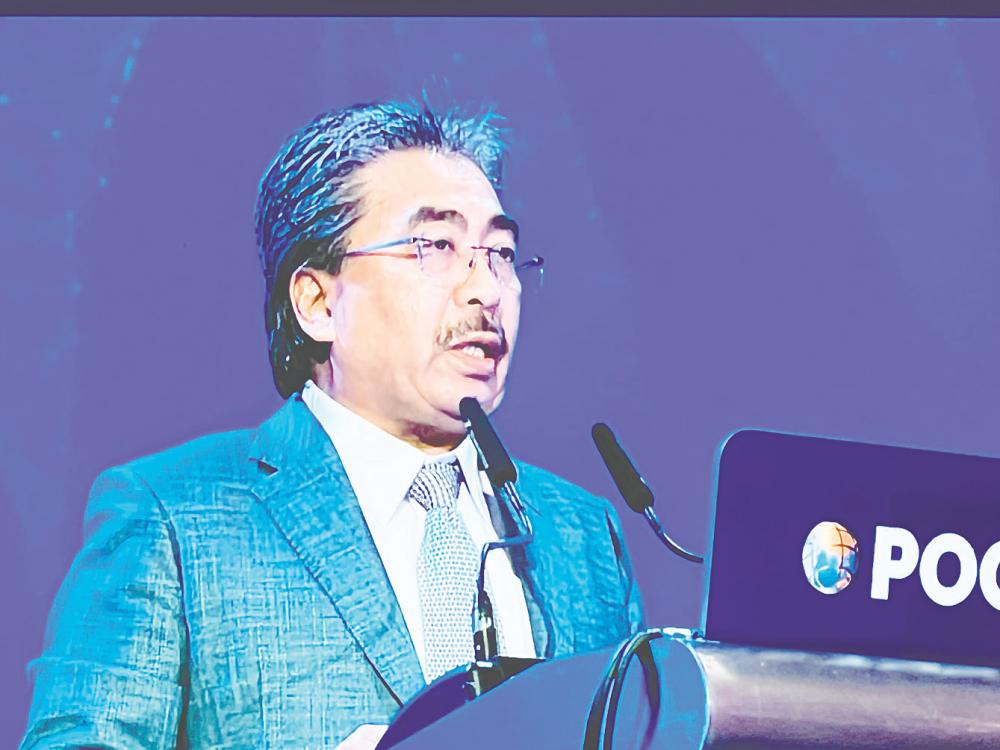PETALING JAYA: The government will strengthen collaboration with Tenaga Nasional Bhd (TNB) and the Energy Commission (ST) to enhance grid connectivity, ensuring that renewable energy generated from the palm oil industry can be effectively integrated into the national power system.
Plantation and Commodities Minister Datuk Seri Johari Abdul Ghani said this initiative is crucial for optimising Malaysia’s renewable energy potential and aligns with TNB’s long-term investment strategy in sustainable energy infrastructure.
“The government recognises that palm oil by-products, such as mesocarp fibre, empty fruit bunches and palm kernel shells, represent an untapped energy resource that can be converted into biomass energy, significantly contributing to the nation’s renewable energy goals.
“Beyond supporting Malaysia’s clean energy transition, renewable energy presents significant opportunities for foreign direct investment. It positions Malaysia as an attractive destination for investors seeking to participate in the shift towards sustainable and low-carbon energy solutions,” he said in a press conference held in conjunction with the 36th Palm & Lauric Oils Price Outlook Conference & Exhibition 2025 today.
Johari emphasised that the potential within the palm oil sector is substantial, given that Malaysia has 450 palm oil mills nationwide.
“Each 60-tonne-per-hour mill has the capacity to generate between 5 and 7 megawatts (MW) of electricity. If harnessed effectively, the total power output from the industry could exceed 2,000MW, a significant addition to the national energy supply.
Despite the opportunities, Johari said, one of the biggest challenges faced by the industry is the lack of grid connectivity, which prevents many mills from transmitting their excess energy.
“Currently, some palm oil mills generate surplus power but are unable to supply it to the national grid due to the absence of necessary infrastructure. To resolve this, the government will work closely with TNB and ST to identify palm oil mills that are ready for grid integration and facilitate the necessary investments to connect them.
“This step is vital for ensuring that renewable energy from the palm oil sector can be fully utilised rather than wasted, helping Malaysia reduce its dependency on fossil fuels while improving energy security.”
Johari disclosed that private sector interest in waste-to-energy investments is growing, with companies willing to finance the development of energy infrastructure in the palm oil sector.
“There are already investors who have approached us, stating that they are not necessarily interested in the palm oil business itself, but rather in the energy sector linked to palm oil waste. They see strong investment potential in turning palm biomass into electricity.”
Johari said replantation is a critical component in ensuring the long-term sustainability and productivity of Malaysia’s palm oil industry. Increasing the replantation rate is essential, he added, given the country’s commitment to zero deforestation and the need to boost yields without expanding land use.
In 2024, Johari noted, Malaysia managed to replant only 114,000 hectares, which is a decline from the 132,000 hectares replanted in 2023.
“This falls significantly short of the recommended target of at least 4% per year, or approximately 255,000 hectares. Failure to meet this target could negatively impact the industry’s future, as ageing palm trees result in lower yields and reduced efficiency.”
To address these challenges, Johari said, the government is prioritising the use of high-quality planting materials, ensuring that smallholders receive the preferred Tenera Hybrid instead of low-quality variants that could compromise long-term yields.
He also underscored the importance of supporting smallholders, who manage about 1.5 million hectares of oil palm plantations but often face challenges due to lack of scale and knowledge. “If smallholder yields could be increased by just 5 metric tons per hectare, Malaysia could boost crude palm oil production by 1.5 million metric tons, without requiring additional land,” he noted.









